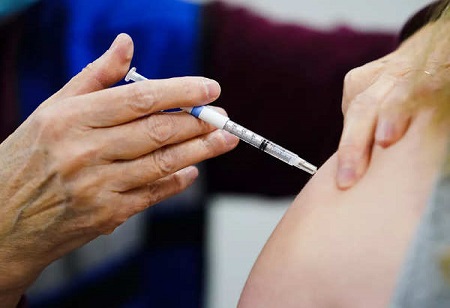India Pharma Outlook Team | Tuesday, 12 July 2022

The National Technical Advisory Group on Immunisation (NTAGI's) Covid working group is expected to conduct a meeting soon to discuss India's first mRNA vaccine against COVID and Biological E's Corbevax Booster dose for Covishield and Covaxin beneficiaries, said the sources. Recently, the Drugs Controller General of India (DCGI) approved 2 dose mRNA vaccine of Gennova Biopharmaceuticals for COVID for restricted use in emergency situations for the above-18-years age group. It is the first time ever that this vaccine is stable for storage at 2 to 8 degrees Celsius.
Earlier, the Subject Expert Committee under India's drug regulator found that the data submitted by Gennova Biopharmaceuticals was satisfactory in the meeting held on Friday, sources present in the meeting told the media agency. Gennova Biopharmaceuticals submitted the data in the month of April followed by additional data in the month of May. Earlier last month, in an exclusive interview with the media agency, Dr Sanjay Singh, Chief Executive Officer and Whole-time Director, Gennova Biopharmaceuticals Ltd, said that the company is ready to roll out India's first mRNA vaccine in 72 hours after the government's permission. "We are ready with the vaccine, hopefully as soon as the NTAGI gives us the permission and the government gives us the way out we are able to roll out within 72 hours," he said.
The mRNA vaccine produced by Gennova Biopharmaceuticals Ltd will be sold out under the brand name GEMCOVAC-19. The firm has the capacity to produce 200-300 million doses depending upon the need. "At present, we can go to 200-300 million doses, we can produce depending upon the need, but this can be scaled up because this is the advantage of this technology. You don't need huge manufacturing plants," Dr Singh said. On pricing of the vaccine Dr Singh said that the pricing of the vaccine hasn't been yet decided, but the firm is in conversation with the government. "The pricing of the vaccine hasn't been decided yet, it's under conversation with the government but it has to be competitive pricing," he said.
The indigenous innovative mRNA vaccine is based on the second wave driven by the Delta variant and can be kept under 2 to 8 degrees Celsius this means vaccines can be stored between 2 and 8 degrees Celsius. Most other vaccines have to be stored at sub-zero temperature. "Due to logistic issues, mRNA vaccines haven't reached to the neediest one. We will try to do this, we are going towards different regions Latin America, Africa and Southeast Asia. So, that we can not only have vaccine supply but also have the joint manufacturing facilities in different regions," explained Dr Singh when asked about future plans and export of vaccines.